Central Auckland > Public Hospital Services > Health New Zealand | Te Whatu Ora - Te Toka Tumai Auckland >
Oncology Services | Auckland | Te Toka Tumai
Public Service, Oncology
Description
Our service is part of the Regional Cancer and Blood Service at Auckland District Health Board. Our teams are specialists in providing care in haematology, medical oncology and radiation oncology. We are here to ensure that you get the best care with the best possible outcome for you and your whānau. This video is here to introduce all of our services to you.
What is Oncology?
Oncology is the area of medicine to do with treatment of cancer. Many different specialties manage cancer treatment. Surgery (Surgical Oncology) uses operations to diagnose cancer and treat it by removing it from people's bodies. Medical Oncology uses medicines or drugs to treat solid tumours such as cancer of breast, bowel, and lung. Radiation Oncology uses radiation, mostly from powerful x-ray machines, to treat tumours. Haematology (Haemato-Oncology) treats tumours of blood such as leukaemia and lymphoma. Palliative Care uses medicines to control the symptoms of cancer to alleviate any suffering.
All these specialties work closely together at the Regional Cancer and Blood Service or they are part of ADHB. Sometimes cancer treatment may involve more than one specialty team depending on your type of cancer and its extent. Much cancer can be cured nowadays or controlled, but because there is still a long way to go, we are also involved with Clinical Trials research in search of better ways of treatment. We work closely with organisations such as the Cancer Society to ensure that people who come to our service have access to information and community support services.
The staff of the Oncology Service includes specialist doctors, nurses, therapists, pharmacists, physicists, psychologists, clerical staff and social workers. We know that cancer's impact on peoples' lives is often more than just physical. As a teaching hospital, we also have the next generation of professionals in training. There is always supervision from experienced staff.
What is Cancer?
The human body is made of millions of cells which normally grow, divide and are renewed in a controlled way. Sometimes this control is lost, and the cells keep growing. A solid group of these cells is called a tumour or "growth".
Cancer is not contagious, it cannot spread to family or friends. Sometimes, however, people can share the causes of cancer, such as smoking or genetic risks.
Consultants
-
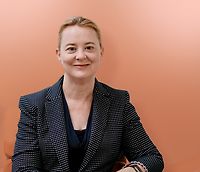
Dr Amanda Ashley
Medical Oncologist - Gastrointestinal Cancer Stream
-

Dr Anna Bashford (Medical Oncologist)
Medical Oncologist - Breast Cancer Stream
-
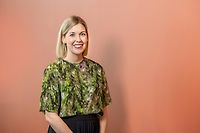
Dr Catherine Bennett
Medical Oncologist - Head and Neck Cancer (Team Leader) and Melanoma Stream
-

Dr Veronica Boyle
Endocrinologist - Neuroendocrine Cancer Stream
-

Dr Reuben Broom
Medical Oncologist - Breast Cancer Stream
-

Dr Lauren Brown
Medical Oncologist - Breast Cancer Stream
-

Dr Laird Cameron
Medical Oncologist - Thoracic Cancer Stream
-

Dr Kathryn Chrystal
Medical Oncologist - Gynaecology Cancer Stream
-

Dr Joanna Connor
Medical Oncologist - Sarcoma (Team Leader) and Breast Cancer Stream
-

Dr Sanjeev Deva
Medical Oncologist - Gastrointestinal Cancer Stream; Early Phase Cancer Trials - ACTC
-

A/Prof Peter Fong
Medical Oncologist - Genitourinary Cancer Stream; Early Phase Cancer Trials - ACTC
-

Dr Simon Fu
Medical Oncologist - Genitourinary Cancer Stream
-

Dr Ayman Hamid
Medical Oncology MOSS - Gastrointestinal Cancer Stream
-
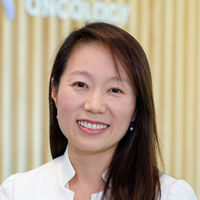
Dr Catherine Han
Medical Oncologist - Gastrointestinal and Central Nervous System Cancer Stream
-

Dr Fritha Hanning
Medical Oncologist - Genitourinary Cancer Stream
-
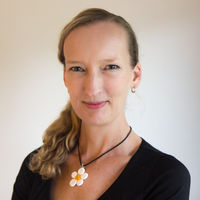
Dr Carmel Jacobs
Medical Oncologist - Genitourinary (Team Leader) Cancer Stream
-

Dr Clément Korenbaum
Medical Oncologist - Breast Cancer and Sarcoma Stream
-

A/Prof George Laking
Medical Oncologist - Sarcoma Stream
-
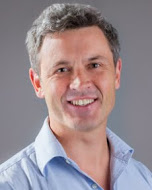
Dr Ben Lawrence
Medical Oncologist - Gastrointestinal and Neuroendocrine Cancer Stream
-

Dr Nicola Lawrence
Medical Oncologist - Genitourinary Cancer Stream
-

Dr Aileen Ludlow
Medical Oncologist - Gastrointestinal and Thoracic Cancer Stream
-

Dr Sanjo Maikulangara Varghese
Medical Oncologist - Breast and Lung Cancer Stream
-

Dr John Weng Mak
Medical Oncologist - Gastrointestinal Cancer Stream
-
Dr Daisy Wing Mak
Medical Oncologist - Lung (Team Leader) Cancer Stream
-

Dr Mike McCrystal
Medical Oncologist - Breast Cancer and Melanoma Stream
-
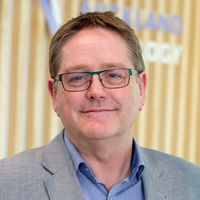
Prof Mark McKeage
Medical Oncologist - Head & Neck Cancer Stream
-

Dr Soizick Mesnage
Medical Oncologist - Breast Cancer Stream
-
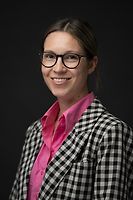
Dr Alice Minhinnick
Medical Oncologist - Lung Cancer Stream
-

Dr Angela Mweempwa
Medical Oncologist - Gastrointestinal and Central Nervous System Cancer Stream
-

Dr Mahendra Naidoo
Medical Oncologist - Gastrointestinal Cancer Stream
-

Dr Michele O'Neill
Medical Oncology MOSS - Breast Cancer Stream
-

Dr David Porter
Medical Oncologist - Breast Cancer Stream
-

Dr Gareth Rivalland
Medical Oncologist - Thoracic Cancer and Melanoma (Team Leader) Stream
-
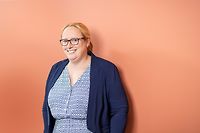
Dr Rebecca Roberts
Medical Oncologist - Gastrointestinal Cancer Stream
-
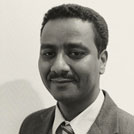
Dr Osama Salih
Medical Oncologist - Gastrointestinal and Head & Neck Cancer Stream
-
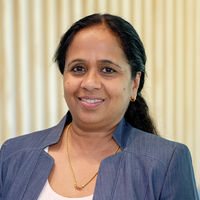
Dr Rita Sasidharan
Medical Oncologist - Breast and Gastrointestinal Cancer Stream
-

Dr Jane So
Medical Oncologist - Gastrointestinal (Team Leader) Cancer Stream and Early Phase Cancer Trials - ACTC
-

Dr Rosalie Stephens (nee Fisher)
Medical Oncologist - Gynaecological Cancer (Team Leader) and Melanoma Stream
-

Dr Naera Waters
Medical Oncologist - Breast Cancer Stream
-

Dr Michelle Wilson
Medical Oncologist - Gynaecological Cancer Stream; Early Phase Cancer Trials - ACTC
-
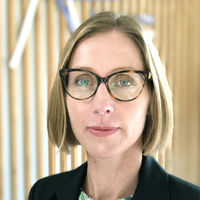
Dr Sheridan Wilson
Medical Oncologist - Breast (Team Leader) Cancer Stream
-

Dr Edbert Wong
Medical Oncologist - Thoracic and Sarcoma Cancer Stream
-

Dr Emily Wong
Medical Oncologist - Breast Cancer Stream
Referral Expectations
Usually referral to the Cancer Service is by letter from another doctor, such as a GP or surgeon. One of our consultant oncologists will read through the letter, and ask our clerical staff to book an appointment taking account of the urgency of the condition.
When you come to Oncology Outpatients you will be seen by a member of the Oncology Team who will ask questions about your illness, examine you, and discuss the management of your condition. We encourage people to bring a family member or other support person to sit in on their visit.
Procedures / Treatments
Chemotherapy is the use of medicines to kill or reduce the spread of cancer cells. Chemotherapy is given as cycles and may be given once a day, once a week or even once a month. This depends on the type of cancer and the best regimen (course) as determined by research. Chemotherapy, unlike radiation (which treats only the part of the body exposed to the radiation), treats the entire body. As a result, any cells that may have escaped from where the cancer originated are treated. A doctor who prescribes chemotherapy is known as a medical oncologist. Depending on what type of cancer you have and whether it has spread, your doctor may use chemotherapy to: Eliminate all cancer cells in your body, even when cancer is widespread Prolong your life by controlling cancer growth and spread or Relieve symptoms and improve your quality of life. Most chemotherapy drugs are given in one of the following ways: You might take a tablet or medicine orally (swallow) It may be given intravenously as an injection over a short period of time or as an infusion over a longer period of time. For these treatments you come into the Department usually for part of the day. Side effects Some people have no side effects at all from chemotherapy. Sometimes, however, chemotherapy will make you feel sick. As each type of chemotherapy has different side effects they will be discussed with you prior to starting any treatment so you know what to expect. Chemotherapy targets cells that are quickly dividing, whether it's a cancer cell or not. Therefore, some non-cancer cells that divide quickly are also damaged. The following is a list of some normal cells that divide quickly in the body and may be susceptible to the effects of chemotherapy: Cells in your hair (can cause hair loss) Cells of the skin and mouth (can cause sores in your mouth and dry skin) Cells in your stomach and intestines (can cause you to feel sick, vomit or have diarrhoea) Cells in your bone marrow. This is where your red and white blood cells are made. White blood cells fight infections, so temporarily you are very prone to these and they can become serious. Loss of red blood cells can make you anaemic and tired. There are many medicines you can take to reduce or lessen these unwanted effects of chemotherapy. In some cases, chemotherapy may be the only treatment you need. More often, it's used in conjunction with other treatments, such as surgery or radiation, to improve results. For example, you may receive: Neoadjuvant chemotherapy. The goal of neoadjuvant therapy is to reduce the size of a tumour with chemotherapy before surgery or radiation therapy. Adjuvant chemotherapy. Given after surgery or radiation, the goal of adjuvant chemotherapy is to eliminate any cancer cells that might linger in your body following earlier treatments.
Chemotherapy is the use of medicines to kill or reduce the spread of cancer cells. Chemotherapy is given as cycles and may be given once a day, once a week or even once a month. This depends on the type of cancer and the best regimen (course) as determined by research. Chemotherapy, unlike radiation (which treats only the part of the body exposed to the radiation), treats the entire body. As a result, any cells that may have escaped from where the cancer originated are treated. A doctor who prescribes chemotherapy is known as a medical oncologist. Depending on what type of cancer you have and whether it has spread, your doctor may use chemotherapy to: Eliminate all cancer cells in your body, even when cancer is widespread Prolong your life by controlling cancer growth and spread or Relieve symptoms and improve your quality of life. Most chemotherapy drugs are given in one of the following ways: You might take a tablet or medicine orally (swallow) It may be given intravenously as an injection over a short period of time or as an infusion over a longer period of time. For these treatments you come into the Department usually for part of the day. Side effects Some people have no side effects at all from chemotherapy. Sometimes, however, chemotherapy will make you feel sick. As each type of chemotherapy has different side effects they will be discussed with you prior to starting any treatment so you know what to expect. Chemotherapy targets cells that are quickly dividing, whether it's a cancer cell or not. Therefore, some non-cancer cells that divide quickly are also damaged. The following is a list of some normal cells that divide quickly in the body and may be susceptible to the effects of chemotherapy: Cells in your hair (can cause hair loss) Cells of the skin and mouth (can cause sores in your mouth and dry skin) Cells in your stomach and intestines (can cause you to feel sick, vomit or have diarrhoea) Cells in your bone marrow. This is where your red and white blood cells are made. White blood cells fight infections, so temporarily you are very prone to these and they can become serious. Loss of red blood cells can make you anaemic and tired. There are many medicines you can take to reduce or lessen these unwanted effects of chemotherapy. In some cases, chemotherapy may be the only treatment you need. More often, it's used in conjunction with other treatments, such as surgery or radiation, to improve results. For example, you may receive: Neoadjuvant chemotherapy. The goal of neoadjuvant therapy is to reduce the size of a tumour with chemotherapy before surgery or radiation therapy. Adjuvant chemotherapy. Given after surgery or radiation, the goal of adjuvant chemotherapy is to eliminate any cancer cells that might linger in your body following earlier treatments.
Chemotherapy is the use of medicines to kill or reduce the spread of cancer cells. Chemotherapy is given as cycles and may be given once a day, once a week or even once a month. This depends on the type of cancer and the best regimen (course) as determined by research. Chemotherapy, unlike radiation (which treats only the part of the body exposed to the radiation), treats the entire body. As a result, any cells that may have escaped from where the cancer originated are treated.
A doctor who prescribes chemotherapy is known as a medical oncologist.
Depending on what type of cancer you have and whether it has spread, your doctor may use chemotherapy to:
- Eliminate all cancer cells in your body, even when cancer is widespread
- Prolong your life by controlling cancer growth and spread or
- Relieve symptoms and improve your quality of life.
Most chemotherapy drugs are given in one of the following ways:
- You might take a tablet or medicine orally (swallow)
- It may be given intravenously as an injection over a short period of time or as an infusion over a longer period of time. For these treatments you come into the Department usually for part of the day.
Side effects
Some people have no side effects at all from chemotherapy. Sometimes, however, chemotherapy will make you feel sick. As each type of chemotherapy has different side effects they will be discussed with you prior to starting any treatment so you know what to expect. Chemotherapy targets cells that are quickly dividing, whether it's a cancer cell or not. Therefore, some non-cancer cells that divide quickly are also damaged. The following is a list of some normal cells that divide quickly in the body and may be susceptible to the effects of chemotherapy:
- Cells in your hair (can cause hair loss)
- Cells of the skin and mouth (can cause sores in your mouth and dry skin)
- Cells in your stomach and intestines (can cause you to feel sick, vomit or have diarrhoea)
- Cells in your bone marrow. This is where your red and white blood cells are made. White blood cells fight infections, so temporarily you are very prone to these and they can become serious. Loss of red blood cells can make you anaemic and tired.
There are many medicines you can take to reduce or lessen these unwanted effects of chemotherapy.
In some cases, chemotherapy may be the only treatment you need. More often, it's used in conjunction with other treatments, such as surgery or radiation, to improve results. For example, you may receive:
- Neoadjuvant chemotherapy. The goal of neoadjuvant therapy is to reduce the size of a tumour with chemotherapy before surgery or radiation therapy.
- Adjuvant chemotherapy. Given after surgery or radiation, the goal of adjuvant chemotherapy is to eliminate any cancer cells that might linger in your body following earlier treatments.
It is very common for people with cancer to want to try other non-medical treatments such as diet or alternative/complementary medicines offered by other practitioners. It is helpful for your oncology team to know what other therapies you might be taking as sometimes there can be interactions with their treatment.
It is very common for people with cancer to want to try other non-medical treatments such as diet or alternative/complementary medicines offered by other practitioners. It is helpful for your oncology team to know what other therapies you might be taking as sometimes there can be interactions with their treatment.
It is very common for people with cancer to want to try other non-medical treatments such as diet or alternative/complementary medicines offered by other practitioners. It is helpful for your oncology team to know what other therapies you might be taking as sometimes there can be interactions with their treatment.
Website
Contact Details
Auckland City Hospital
Central Auckland
-
Phone
(09) 367 0000
Website
-
Patient enquiries
(09) 375 4300
-
Known extension/pager
(09) 307 4949
-
Acute Referrals Service
(09) 375 7030, Ext: 24048
-
Emergency Department
(09) 367 0000, open 24 hours / 7 days
-
Outpatient appointments & surgical booking enquiries
(09) 638 0400 / scheduling@adhb.govt.nz
Mental Health Services
-
24 Hour Crisis Line
0800 800717
-
GP / External Specialist Help Desk
(09) 307 2800
Regional Cancer and Blood Service
Buildings 7 and 8, Auckland City Hospital
2 Park Road, Grafton
Auckland 1023
Street Address
Regional Cancer and Blood Service
Buildings 7 and 8, Auckland City Hospital
2 Park Road, Grafton
Auckland 1023
Postal Address
Regional Cancer and Blood Service
Private Bag 92024
Auckland Mail Centre
Auckland 1142
Was this page helpful?
This page was last updated at 11:05AM on February 2, 2026. This information is reviewed and edited by Oncology Services | Auckland | Te Toka Tumai.

